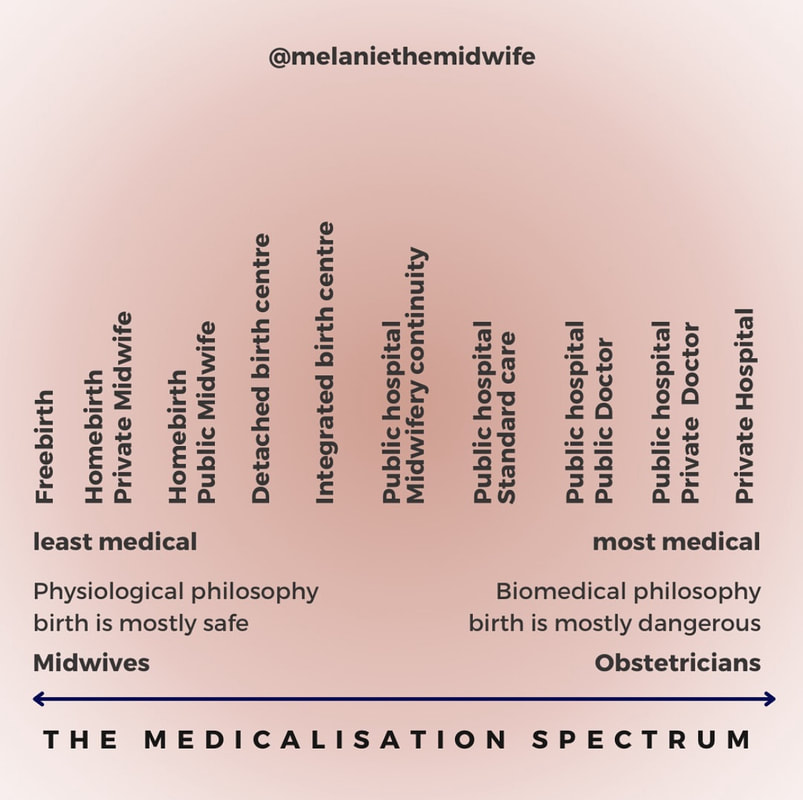Tell me more about your fees
Before you make any financial commitment, Tiffany invites you to connect first either by phone or video, whichever suits you best. It’s important that you feel comfortable and confident, and this first chat is a chance to ask questions, talk about your hopes for birth, and get to know each other.
The total fee for full midwifery care with Tiffany is $7000, with an out-of-pocket cost of $5500 after Medicare rebates.
Once you’ve decided that Tiffany is the right fit for you, a $500 booking fee is payable at your first official appointment. This secures your place in Tiffany’s calendar from booking through to 6 weeks postpartum. The remaining out-of-pocket balance of $5000 is due by 36 weeks of pregnancy. Payment plans are available and can be tailored to suit your needs. Many families choose to plan and save in advance, making lump sum payments. Others prefer weekly payments of around $200–$250 after the booking appointment, ensuring the balance is settled before 36 weeks.
With care confirmed and payments finalised, you can then settle in, enjoy your pregnancy, and prepare for your baby, knowing you’ve made a powerful and lasting investment in your birth and postpartum care.
The total fee for full midwifery care with Tiffany is $7000, with an out-of-pocket cost of $5500 after Medicare rebates.
Once you’ve decided that Tiffany is the right fit for you, a $500 booking fee is payable at your first official appointment. This secures your place in Tiffany’s calendar from booking through to 6 weeks postpartum. The remaining out-of-pocket balance of $5000 is due by 36 weeks of pregnancy. Payment plans are available and can be tailored to suit your needs. Many families choose to plan and save in advance, making lump sum payments. Others prefer weekly payments of around $200–$250 after the booking appointment, ensuring the balance is settled before 36 weeks.
With care confirmed and payments finalised, you can then settle in, enjoy your pregnancy, and prepare for your baby, knowing you’ve made a powerful and lasting investment in your birth and postpartum care.
What does Medicare cover?
Medicare rebates are claimed and retained by Tiffany to cover her total fee. This means that Medicare is picking up approx $1500 of the fee. If any additional care is provided by the hospital, this is all covered by Medicare too.
Why does private midwifery care cost so much?
The average cost of a wedding in 2025 in Western Australia is approximately $30,000. Tiffany will spend an average of 40 hours caring for each of her clients, be on call for births and travel to you for appointments, this makes her service great value for money!
Tiffany acknowledges that the cost of private midwifery care may be restrictive. The fee a private midwife charges ensures that you receive a premium service that is tailored to meet your specific needs. For some women Tiffany will travel further distances to their homes, some women may need a lot of care during pregnancy, women seeking care outside of Australian College of Midwives guidelines for consultation and referral will need increased collaboration and development of robust transfer plans and risk mitigation strategies, some women may be looking to fill a lot of knowledge gaps to be able to make decisions, some women can have long or complex labours and births, other women may need a lot of support during their postpartum. These needs are not always clear at engagement and even when they are, unanticipated circumstances can arise along the way.
Another big part of the safety built into offering a homebirth midwifery service is through the development of a strong relationship between woman and midwife during pregnancy. Because of this, Tiffany's practice is to spend ample time during the pregnancy getting to know each woman and her family deeply, so by the time the birth happens, all the important conversations have already occurred and she can really hold that space during labour and be responsive to whatever might arise during a woman’s birthing process. The package fee allows for all this and more.
Tiffany acknowledges that the cost of private midwifery care may be restrictive. The fee a private midwife charges ensures that you receive a premium service that is tailored to meet your specific needs. For some women Tiffany will travel further distances to their homes, some women may need a lot of care during pregnancy, women seeking care outside of Australian College of Midwives guidelines for consultation and referral will need increased collaboration and development of robust transfer plans and risk mitigation strategies, some women may be looking to fill a lot of knowledge gaps to be able to make decisions, some women can have long or complex labours and births, other women may need a lot of support during their postpartum. These needs are not always clear at engagement and even when they are, unanticipated circumstances can arise along the way.
Another big part of the safety built into offering a homebirth midwifery service is through the development of a strong relationship between woman and midwife during pregnancy. Because of this, Tiffany's practice is to spend ample time during the pregnancy getting to know each woman and her family deeply, so by the time the birth happens, all the important conversations have already occurred and she can really hold that space during labour and be responsive to whatever might arise during a woman’s birthing process. The package fee allows for all this and more.
What do I get for my money?
- Approximately 20 generous one hour appointments during pregnancy and postpartum.
- Tiffany travels to your home for all your appointments, travelling up to one hour to come to you for these appointments.
- Paperwork and behind the scenes planning and collaboration as needed.
- Tiffany is available to you throughout pregnancy to answer all urgent and non-urgent questions.
- Tiffany is on call 24 hours a day for you from 37 weeks.
- Another midwife is also on call for your birth from 37 weeks.
- Two highly skilled midwives to attend your homebirth.
- An average of 12 hours of care for you during labour, birth and the hours after birthing.
- Equipment and consumables for your birth.
- Support and advocacy during interactions with other maternity services as needed.
- Any complex care provided in hospital is covered by Medicare.
...and so much more
Who will be the other midwife at my homebirth?
Tiffany works primarily with Caitlyn Atkinson The relationship between midwives who attend homebirths together is built on a foundation of trust, respect and collaboration. Tiffany and Caity have aligned birth philosophies, practice in a similar way and work beautifully together as a team. You can expect to barely notice Caity in your birth space, but feel comforted knowing her skills and experience compliment Tiffany's midwifery care well. Occasionally it may be the case that a different midwife is in attendance at your birth, the same level of professionalism and teamwork can be expected from any midwife who steps into your birth space.
Do you offer hospital birth?
Tiffany's clients commence care with the intention to birth their babies at home. However, Tiffany will absolutely support you to birth your baby in hospital if there are circumstances which have emerged during pregnancy, labour or birth, bringing you to the decision that birthing in hospital is now the safest and best place to birth. In hospital, Tiffany supports you in a non-clinical capacity only, meaning there are restrictions on what care Tiffany can provide in that setting.
What is a midwife?
Only midwives who are registered or endorsed with the Nursing and Midwifery Board of Australia can use the title "midwife"; this title is protected by National Law. Midwives work autonomously but also collaborate with other health professionals. Tiffany sees the role of the midwife as the conduit between home and hospital. Midwives work closely with women to embrace and preserve physiology and identify deviations that may need care beyond their scope of practice. Tiffany recognises you as the expert of your body and baby, providing intuitive and curated care that meets your needs. The International Confederation of Midwives (ICM) has a working definition of what a midwife is that gives additional context, see below.
A midwife is a person who has successfully completed a midwifery education programme based on the International Confederation of Midwives (ICM) Essential Competencies for Midwifery Practice and the framework of the ICM Global Standards for Midwifery Education, recognised in the country where it is located; who has acquired the requisite qualifications to be registered and/or legally licensed to practice midwifery and use the title ‘midwife,’ and who demonstrates competency in the scope of practice of the midwife.
Scope of Practice
The midwife is recognised as a responsible and accountable professional, who works in partnership with women to give the necessary support, care and advice during pregnancy, labour and the postpartum period, to conduct births on the midwife’s own responsibility and to provide care for the newborn and the infant. This care includes preventative measures, the promotion of normal birth, the detection of complications in mother and child, the accessing of medical care or other appropriate assistance and the carrying out of emergency measures.
The midwife has an important task in health counselling and education, not only for the women and gender diverse people they serve, but also within families and communities. This work should involve antenatal education and preparation for parenthood and may extend to sexual and reproductive health care, and care for infants and young children.
A midwife may practice in any setting including the home, community, hospital, clinic or health unit.
What other options are there for continuity of care?
Tiffany encourages you to explore all your options and choose a service that aligns with your values.
- Other private midwives in the region offer exceptional services, packages and different fee structures.
- Midwifery Group Practice (MGP) is available to women who live in Bunbury, Margaret River, Bridgetown, Manjimup and Collie. Only Bunbury MGP offers the option of publicly funded homebirth to women with ‘low risk pregnancies’. This service is available to women who live within a 30km radius of Bunbury hospital.
- Doulas can meet the needs of women seeking non-medical pregnancy, birth and/or postpartum support. Doulas will often support women alongside standard maternity services.
- Student midwives offer free, committed and supportive continuity of care as part of their learning experience.
- General Practitioner Obstetricians (GPO) care for the majority of women in rural areas during pregnancy. Getting to know your chosen GPO can feel comforting during pregnancy. However, due to a rotating roster, your GPO may not be on call the day you birth, additionally your labour care will be provided by hospital midwives who you may or may not have met during one of the three routine hospital appointments you attended during pregnancy.
- Private Obstetricians
The Birth Project Australia has created a comprehensive directory of birth services available in the south west region of Western Australia. You will also discover a wide range of suggested birth resources you may wish to explore.
How do homebirths and privately practising midwives fit into the modern maternity landscape?
Australia's maternity landscape is somewhat complex, and not necessarily easy to understand or navigate as a pregnant woman. The following podcast episode and infographic are helpful resources created by Dr Melanie Jackson to explain this structure more clearly. You may find these resources interesting and supportive in your decision making process.
The medicalisation spectrum is 101 when you are planning a birth that feels safest and most satisfying to you. Understanding where you sit on the medicalisation spectrum is the key to planning the rest of your pregnancy, birth and postnatal care. In this episode Mel explains the medicalisation spectrum with reference to where your care provider and chosen birth location would also fit along the spectrum. Mel discusses the 2 types of birth philosophies and where they fit on the spectrum. Understanding this is crucial as you make your maternity care decisions." |
|
Do I need to see a doctor before I have my first appointment with you?
No. Since 1st November 2024, this requirement has been removed. It is now possible to make contact with a private midwife directly and commence care from early pregnancy. This change creates an opportunity to begin the relationship with your private midwife much earlier in your pregnancy. Tiffany will work with you if complexities arise during your pregnancy and may recommend consultation or referral with medical and other care providers if situations emerge that are outside of her scope of practice.
Do I need to tell the hospital I plan to birth at home?
This is not a step you will need to take on your own! Tiffany will guide you through this process based on where you're at in your pregnancy at first contact to ensure that you can engage with the hospital's system via the easiest pathway possible. It is Tiffany's preference that you are booked in at a backup hospital to facilitate smooth and efficient transfer in the event of pregnancy, birth or postpartum complications. This can be discussed in more detail during initial contact.
What steps can I take from here?
|
Get in touch. Contact Tiffany either through the website contact form, by email sheoakmidwifery@gmail.com , text message or phone call on 0408305346.
If you feel called to share a little about yourself and what has inspired you to consider homebirth, please do. Please also share any times that suit you and your partner or support people best for either video call or in person meet up. Tiffany will be in contact to arrange your free, no obligation 'get to know each other' session. This is a great opportunity to meet, vibe and discuss how Tiffany's service might align with your vision and desires. When you feel ready to take next steps, Tiffany will send you an invoice to pay the $400 non-refundable booking fee and arrange a time for your booking appointment. The booking fee is to be paid before your first appointment. Your booking appointment is where your journey with Tiffany begins. This appointment will involve a lot of discussion about all the things that have brought you to this point and with that we will make a plan about how best to go forward. There is a lot of information sharing during this initial appointment that sets the foundation on which this experience will be built. Tiffany can't wait to get to know you. |



